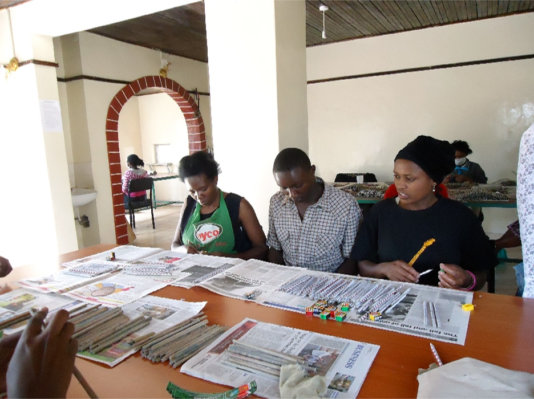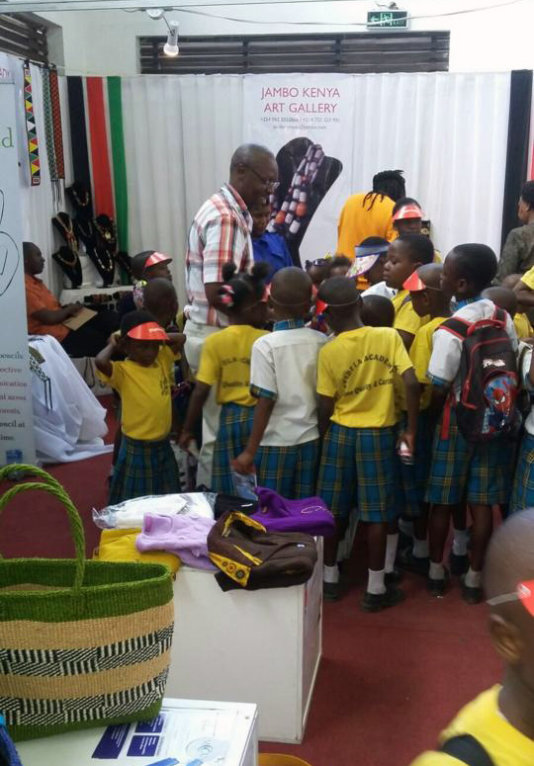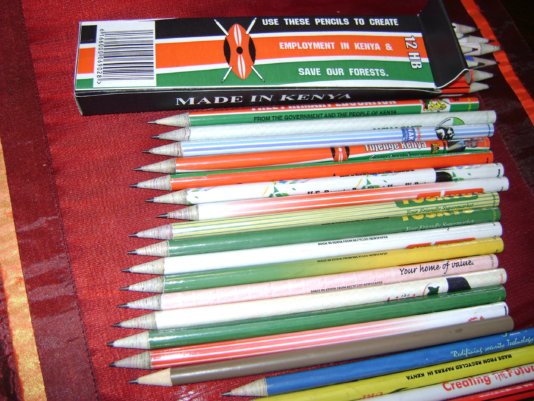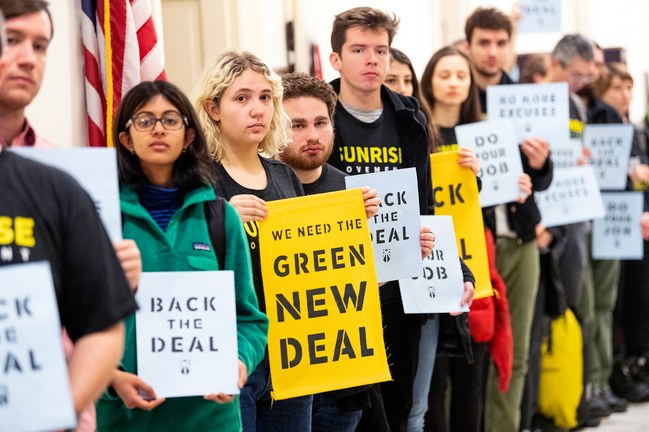- About
- Topics
- Story
- In-Depth
- Picks
- Opinion
- News
- Donate
- Signup for our newsletterOur Editors' Best Picks.Send
Read, Debate: Engage.
| January 07, 2016 | |
|---|---|
| topic: | Sustainable Development |
| tags: | #green business, #Green Pencils Ltd, #recycling, #social entrepreneurship |
| located: | Kenya |
| by: | Cherotich Kenei |
Ivan Isa is the co-founder and director of Green Pencils Ltd, a Kenyan company that manufactures high-quality environment-friendly branded pencils and pens from recycled paper. What meaning green business ventures have for Kenya and what challenges Ivan Isa has to face, that he explains to FairPlanet.
Why did you decide to set up a “green business”?
My co-founder used to work in the waste management industry. The challenge was to manufacture a useful product from recycled waste. We always wanted to manufacture something from waste that would not only change lives but also have a positive impact on the environment and livelihoods.
How did you get the idea to use this recycled waste to produce pencils?
The first product we ventured was a charcoal briquette. But the product produced a lot of smoke and that alone killed the project. Learning from failures is a very eye-opening experience. The pencil possessed all the attributes we were looking for: creating employment and saving the environment. Pencils are also a product that would have a positive influence on the users – and most of them are children.
And how exactly is the process of your stencils?
Divulging the process is not in the commercial interest of our company Green Pencils Ltd. However, the process of making the pencils from newspapers essentially involves reversing the process that was used to make the paper soft.
Besides regenerating an economic success out of your business what else gives you fulfilment as a “green entrepreneur”?
Every aspect of my job gives me a fulfilment - from the creating of employment to the providing of a basic writing tool that helps to protect the environment. Every part of the job creates a positive impact on the society and that is an enviable position I find myself in every day. Watching children using the pencils adds a special ring to all this and every satisfied customer gives me a chance to form new relationships that changes our life in Kenya and in a wider perspective in the world.
How established is the idea of sustaining green initiatives in Kenya?
It is exciting to note that an environmental awareness is increasing in Kenya. Unfortunately, our understanding of going green is based on the body of science – and this is something why practical approaches are sometime trivialised at our peril.
Is there anything, which can be done to support more “practical” green business ventures as yours?
For example, our company runs a program with the schools we supply. To promote environmental awareness and responsibilities, we educate the students on recycling, reducing and re-using concepts. The students get involved in collecting old newspapers and get the understanding of the value chain. This is important because when they realise the transformation from trash to pencils it opens their minds to more responsible behaviours and may inspire them to find their own visions for “going green”.
Is there a special advice you give these students looking into joining a green initiative to help them become breadwinners?
The climate change presents many challenges in our world today. Successful products and services available in the market are efficient to solve a problem or a need. Create the solution and you will be on your way to success.
The education of the next generation of “green inventors” is one of the challenges for Kenya. What other obstacles have green businesses to face according to your practical experiences?
Specifically, when it comes to products like our pencils also the technology is posing a threat - e.g. smart phones, tablets or computer - people are tempted to write less. But in general there is one thing, which counts for all Kenyan businesses: the majority of Kenyans believe that imported goods are superior and any locally made product is inferior. Also often, entrepreneurs in Kenya are missing the capital to expand the business and to establish defined distribution networks. Business permits and licences are still very expensive.
That sounds like a task for the Kenyan authorities. What do you think the government could do to promote entrepreneurs like you?
We need the government to recognise our efforts and to create an enabling environment for us. We are not saying the government should stop the import from international competing brands or products, but it should procure from us first before it looks elsewhere. Our products are as good as any premier brands out there. Considering that the government is a huge market by itself, this would be a big step in the right direction.
How do you evaluate the private – public partnerships? Would they support the adaptation of more green initiatives?
Absolutely! The government can’t do it alone. The government has resources but the ideas and technology mainly come from the private sector. This would create a win-win situation for all.
That seems to count for the African green business scene in general. In your opinion are African governments doing their part to ensure a green economy can be sustained?
You can observe, there is the will. But the political scene in Africa has many divers dynamics and changes very fast. I believe that technology and an economic focus will overtake the politics and regulatory efforts of national governments. What we need to see more of are partnerships between the governments and the private sectors. There are hope and good signs of going in the right directions.
Signs like that Kenya is gearing up to fulfil its mandate stipulated in the Vision 2030. What role do you think green economies shall have in this vision?
Green businesses should and can be a catalyst of change. Our products are a very powerful tool and have the power to make change possible. We are also passionate about the environment and our conviction and determination to create a lasting change and make the world a safer, healthier and better place for all.
By copying the embed code below, you agree to adhere to our republishing guidelines.



